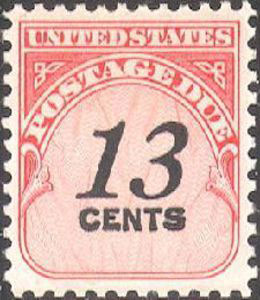當前位置: Language Tips> 英語學習專欄
分享到
13美分,一筆很小數目的金額,而它卻與一位前任總統的來信有關……是堅持還是退讓?

By James Patterson
朱紅 注
In 1976, during my junior year of university, I volunteered to work for the Presidentials, a national youth program to elect Gerald Ford president of the United States. Mr. Ford was already serving as president—America’s only unelected president. (In 1973, he became vice president when Spiro Agnew resigned. Later, in 1974, Ford became president when Richard Nixon resigned due to his involvement in the Watergate scandal. )
I worked with other Presidentials in my state to support Ford in the GOP presidential primary. It was exciting work, and I was invited to go to the Republican National Convention in Kansas City. It was exciting because, going into the convention, neither Ford nor his challenger, Ronald Reagan, had enough delegates to capture the presidential nomination.
Eventually, Ford captured the delegates needed to win the nomination, but then lost the election to Democrat Jimmy Carter.
In January 1977, on Ford’s last day as president, I sent a telegram to him and Mrs. Ford at the White House. I thanked them for their service to our country and wished them well as private citizens. It was a brief message.
Several days passed, and I received a response from the Fords, a letter. In the upper-right corner of the envelope, where the first-class stamp normally goes, was the signature “Gerald Ford.” The envelope was also stamped by the post office with “Postage due 13 cents.” Yes, in 1977 the cost of a first-class stamp was 13 cents.
My mail carrier wanted to collect the 13 cents from me, but I remembered a former teacher instructing my class that presidents didn’t have to pay postage. Presidents could simply sign their names on the letter and the US Postal Service would deliver it. So I told the mail carrier that I didn’t have to pay the postage because Gerald Ford was president of the United States.
The mail carrier countered by saying only a sitting president could get free postage. I held my ground . I told him that former President Ford was entitled to free mail as a perk of his former job. The mail carrier maintained that I owed 13 cents for the presidential letter, and he refused to give it to me.
He said the letter would be held at the local post office and I could pick it up when I was ready to pay the 13 cents.
So I called and made an appointment to talk with the local postmaster.
When I arrived for my appointment, I was nervous but still firm in my position that I did not owe 13 cents for the presidential letter. Surely, I thought, the postmaster knew the rules for presidential mail.
To my surprise, the postmaster greeted me warmly. He thanked me for coming in to discuss my claim. Apparently, the postmaster had been briefed on the reason for my visit.
“Mr. Patterson,” the postmaster said, “you are right. President Ford’s signature is sufficient to cover the first-class cost of his letter to you. You do not owe the Postal Service 13 cents.” The postmaster went on to say he wished his employees knew as much about the Postal Service policies on presidential mail as I apparently did. Then the postmaster handed me the letter. I thanked him and left the post office.
Outside in front of the post office, I opened the letter. “Thank you for your kind words,” it began. It ended with, “Betty and I are grateful for your friendship.” And I was grateful the Fords had found time to drop me a letter in response to my telegram. It is a special letter to me and one I will always treasure.
Vocabulary
1. Gerald Ford: 杰拉爾德?福特,美國第38任總統(1974—1976),原為副總統,尼克松辭職后繼任總統。
2. Spiro Agnew: 斯皮羅?阿格紐,美國副總統(1969—1973),共和黨人,1973年因貪污受賄等丑聞而辭職。
3. Richard Nixon: 理查德?尼克松,美國第37任總統(1969—1974),共和黨人,因水門事件而被迫辭職;Watergate scandal: 水門事件丑聞,1972年6月美國總統大選之前,民主黨水門大樓本部遭人安裝竊聽器,經調查與共和黨競選委員會有關,導致美國歷史上的首次總統辭職。
4. GOP: 是Grand Old Party的縮寫,老大黨,指美國共和黨;presidential primary: 總統預選。
5. convention: (正式)會議,(定期)大會。
6. Ronald Reagan: 羅納德?里根,美國第40任總統(1981—1988),共和黨人,曾任加利福尼亞州州長,長期從事過廣播、電視、電影工作,總統任內推行減稅政策,改革政治經濟,提出戰略防御計劃;delegate: 代表。
7. Jimmy Carter: 吉米?卡特,美國第39任總統(1977—1981),民主黨人。
8. first-class: (郵件)第一類的,優先投遞的。
9. due: 欠款的,應支付的。
10. mail carrier: 郵遞員。
11. 郵遞員反駁說,只有現任總統才能享受免郵資的待遇。counter: 反駁;sitting: 在任期內的,現任的。
12. hold one’s ground: 堅持立場,不讓步。
13. 我告訴他前總統福特有權享受免郵資的待遇,這是他在前任工作中所應有的特權。perk: =perquisite,特殊待遇,特權。
14. maintain: 堅持。
15. claim: 權利,要求權。
16. brief: (尤指事前)向……介紹基本情況。
17. sufficient: 足夠的,充足的。
(來源:英語學習雜志 編輯:丹妮)
分享到
關注和訂閱


電話:8610-84883645
傳真:8610-84883500
Email: languagetips@chinadaily.com.cn